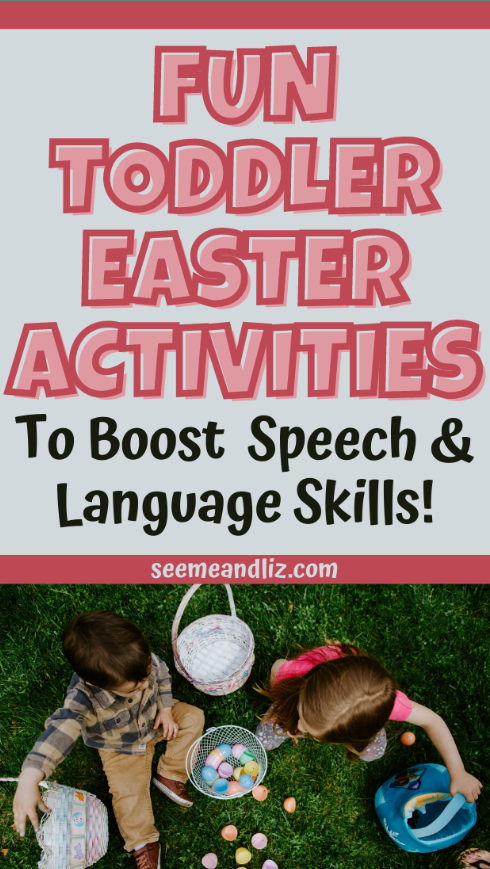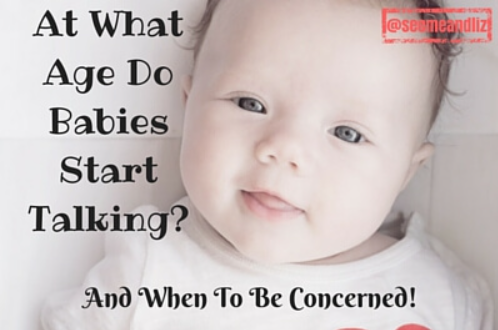I know many parents wonder “why read to a baby?”
You’re probably thinking they don’t even understand the book and maybe it even bores them.
But this can’t be further from the truth.
While it is true that a young baby doesn’t understand all of the words you are reading, with continued exposure to these words in a variety of environments, they will soon grasp their meaning.
Most parents instinctively read to their babies without really thinking of how it may help with their child’s language development later on.
While this is wonderful (instinctively reading to a baby), it is also good to know exactly why reading to a baby is such an important early learning activity.
One thing to note is that when you are reading to your baby (or toddler) the goal should never be to teach them how to read!
Many experts agree that most children are not developmentally ready to learn to read until they are between 6 and 7 and teaching kids earlier does not have any positive benefits.
Despite this, most schools are still expecting children to learn to read between the ages of 4 and 5.
Another question many parents ask is “when should I start reading to my baby?”
The answer to that is as soon as they arrive!
You can even start reading to your little one in the womb, however, don’t feel like this is crucial to your baby’s development.
Do it if you want, but don’t feel bad for choosing not to.
6 Reasons Why You Should Make Shared Book Time a Daily Activity
Creates A Bonding Experience
Even though I had many years of experience working with babies and young children before having my own, I still found the first 6 months of my children’s lives tough.
Babies typically aren’t interacting with their parents until they are over 6 months old (you might get a few smiles before then, but that’s about it) and many parents (including myself) find it almost unnatural to talk to someone who isn’t able to respond or understand what you are saying.
However, because of my background in child development, specifically speech and language development, I knew the importance of interacting with my baby from day 1, despite how unnatural it sometimes felt.
Reading is a great way to cuddle up and bond with your baby.
When your baby is not mobile you don’t have to worry about them running away a page into the book. They will listen to you intently.
Reading to your baby also helps them get used to the sound of your voice.
Make sure you use inflections and intonation while reading to keep them engaged.
If you read in a monotone voice, you may end up putting your little one to sleep!
Exposes Baby To Sentence Structure and Grammar
In the section above I mentioned using intonation and inflection during book reading with your baby.
This isn’t simply to make sure your baby stays interested, it is also teaching them about language and how sentences and questions are formed.
If your pitch raises at the end of a sentence, your baby will start figuring out that this type of sentence is a question.
So make sure you pause after asking questions.
Use expression in your voice when reading!
Expands Vocabulary
By reading to your baby, you are exposing them to many new vocabulary words.
A great thing about babies is that you can actually make up your own stories when looking at picture books, since they can’t read the words.
In fact, you don’t have to read the text at all!
Talk about what you see in the pictures.
Point to and label simple words that can be found in the pictures.
Did you know that a preschooler’s vocabulary size is one of the best indicators of success later on?
This is more important than your toddler being able to count or “read”.
In order for your preschooler to have a large and varied vocabulary, consisting of nouns, verbs, adjectives, etc. they must be exposed to new words daily, starting from birth.
And book reading is a great way to do this.
“Reading regularly with young children stimulates optimal patterns of brain development and strengthens parent-child relationships at a critical time in child development, which, in turn, builds language, literacy, and social-emotional skills that last a lifetime.” – Statement from American Association of Pediatrics
Makes Reading A Fun Activity
Babies who are read to regularly tend to be more interested in books as preschoolers and school aged children.
But remember, keep reading fun!
You, the parent is doing the reading.
Your baby is simply listening and taking it all in.
They love hearing the sound of your voice and you will probably see some smiles when you pick up your child’s favorite book!
As your baby gets older, let them choose a book.
Place 2–3 books in front of them and ask “which book should we read, you pick”.
If your baby isn’t pointing or grasping yet, look for eye gaze.
If they look at one book more than the others, read that one!
As you can see, some guesswork on your part will be required. But the more you involve your baby, the more fun reading will be!
Reading Builds Listening and Memory Skills
This is true for older children and adults too!
Reading is a great way to build memory skills.
And when someone is reading aloud to you, you need to listen in order to retain any of the information.
The earlier these skills start developing the better.
Reading Promotes Social Development
By reading to your baby and interacting with them at the same time, they are also learning valuable social skills.
In the “expand vocabulary” section I mentioned pointing to pictures of what you are “reading” or talking about.
Your baby will start looking from you to the picture and back to you again.
This also goes for pointing and vocalizing.
These are all early forms of social skills (turn taking, eye contact, etc).
The Benefits Of Reading To Your Baby Are Endless!
As you can see the answer to the question “why read to a baby?” is simple.
Reading to your baby will give their language development a boost.
So don’t wait, start reading with your baby as early as possible.
But with so many books to choose from, it can get overwhelming.
So be sure to read this article about how to choose the best books for your baby’s language development.




